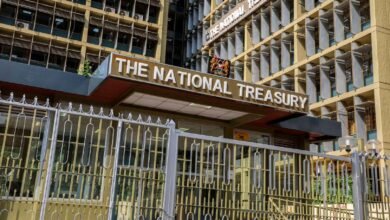
Uganda on Tuesday announced the closure of parliament for 14 days as a second wave of COVID-19 continues to devastate the country.
The parliament will be closed for lawmakers effective June 28, 2021, to July 11, 2021, to allow the disinfection of the parliamentary buildings in the capital city of Kampala.
“As a mitigating measure in the prevention of the COVID-19 infection, the Administration of Parliament in consultation with the Office of the Speaker is closing Parliament to Hon. Members of Parliament for a period of two weeks in order to disinfect the Parliamentary Buildings,” said Waiswa Henry Yoweri, Clerk to Parliament, Parliament of Uganda.
The closure comes after the parliamentary commission last week announced that over 100 lawmakers and members of staff tested positive for the novel coronavirus.
“Parliament of Uganda like the rest of the country has been affected by the second wave of COVID-19 pandemic with a positive rate of 17.1 percent,” said Kibirige.
By Tuesday, Uganda had registered a total of 73,401 cases and 714 deaths, according to official figures.
Also Read:
- Uganda’s military start producing medical oxygen to bridge supply gap as COVID cases rise
- Uganda records 49 COVID deaths in 24 hours with over 1,000 new cases
- Kenya’s budget surpasses that of Tanzania, Uganda combined
Data from Uganda’s Ministry of Health further shows that the country’s test positivity rate stands at 17.4 percent.
In terms of vaccination, Uganda has administered 834,271 doses of COVID-19 vaccine doses.
On Sunday, President Yoweri Museveni announced a lockdown in a bid to arrest the situation.
Museveni suspended non-essential travel between districts and ordered closure of schools for six weeks. Mass gatherings also remain banned in Uganda.
Coronavirus patients have more than doubled at Ugandan health facilities since the end of May.
Uganda’s military is producing medical oxygen to bridge supplies in hospitals witnessing an upsurge in admissions.





